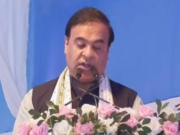
“Certain tax benefits to start-ups and investments made by sovereign wealth or pension funds as also tax exemption on certain income of some IFSC units are expiring on 31.03.2024. To provide continuity in taxation, I propose to extend the date to 31.03.2025,” finance minister Nirmala Sitharaman said in her budget speech on Thursday.
Elevate Your Tech Prowess with High-Value Skill Courses
| Offering College | Course | Website |
|---|---|---|
| IIT Delhi | IITD Certificate Programme in Data Science & Machine Learning | Visit |
| MIT | MIT Technology Leadership and Innovation | Visit |
| IIM Kozhikode | IIMK Advanced Data Science For Managers | Visit |
The tax holiday scheme for startups, announced for the first time in the Union Budget 2017, offers 100% tax rebate to eligible startups on profits made for a period of three years in a total time frame of 10 years of operations.
However, for startups to be eligible for availing the tax incentives, their turnover should be less than Rs 100 crore in any of the previous financial years.
The government has been extending the benefits for one year in every budget since then.Also read | Budget 2024: Key takeaways for tech and startup sectors
Discover the stories of your interest
“These measures are broadly in line with industry expectations. As it was a vote on account, it’s more a reflection than anything else. The upcoming manifesto season will highlight how all parties view capital formation, new asset creation and innovation,” said Siddarth Pai, founding partner of early-stage investment firm 3one4 Capital, and co-chair of the regulatory affairs committee at Indian Venture and Alternate Capital Association (IVCA).“The focus on deep tech startups in the defence sector and the extension of tax benefits until March 2025 for startups, sovereign wealth, and pension funds signify a government committed to supporting growth and resilience. The prolonged tax benefits indicate a steady commitment to creating a conducive environment for startup development and sustainable investments,” Bipin Preet Singh, cofounder and CEO, Mobikwik, said.
Also read | Budget 2024: Govt to expand EV ecosystem to support charging infra: FM Sitharaman
Under the scheme, startups are allowed to carry forward their losses incurred during the said period to the next financial year, when they can set the losses off against income. Tax experts have said the move to give startups more time to avail these incentives is timely given the current environment, where they are trying to reduce costs.
However, the impact of the tax holiday only covers a small number of startups, industry executives said. As per the department for promotion of industry and internal trade (DPIIT), there are around 1,17,000 registered startups under the Startup India Scheme, and only 1-2% of those are eligible for tax holidays.
Additionally, for FY25, the government has budgeted a token amount of Rs 1 lakh under the Startup India scheme. This compares to Rs 45.61 crore as per revised estimates of 2023-24.
However, under the Startup India Seed Fund Scheme, which was implemented on April 1, 2021, for a period of four years with a corpus of Rs 945 crore, the government has allocated Rs 175 crore for FY25, compared to Rs 160 crore in FY24. This scheme aims to provide financial assistance to startups for proof of concept, prototype development, product trials, market entry and commercialisation.
On benefits for IFSC units, Sunil Gidwani, partner at tax consultancy firm Nangia Andersen, said, “Currently the tax holiday for various businesses in IFSC in general is open ended i.e. without any sunset clause. However, in respect of investment division offshore banking units registered as FPIs (foreign portfolio investors) and aircraft leasing business the requirement of setting up business by 31 March 2024 is now extended to 2025 by the finance bill. This should provide some breather to these businesses to set up business in GIFT City.”





































